False Grace
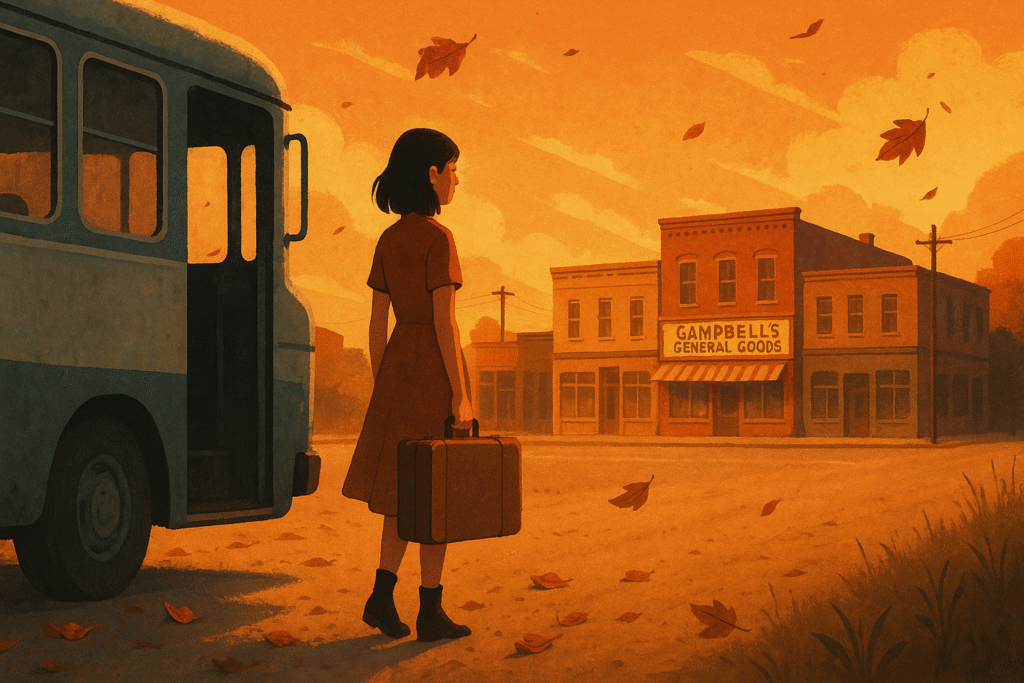
The first thing I stole from Edwin Campbell was a loaf of bread.
I didn’t ask for it. I didn’t need to. All I had to do was stand by the rack long enough, let my lip tremble, let my fingers fumble with invisible change. The rest played out like clockwork, Edwin’s soft voice, his slow shuffle across the creaky wooden floor, and those kind, tired eyes behind gold-rimmed glasses.
“You alright, miss?” he asked, adjusting his suspenders like the weight of my sorrow was something he could carry.
I nodded too quickly. “Just… counting change.”
He paid for it himself. No hesitation.
That was Step One.
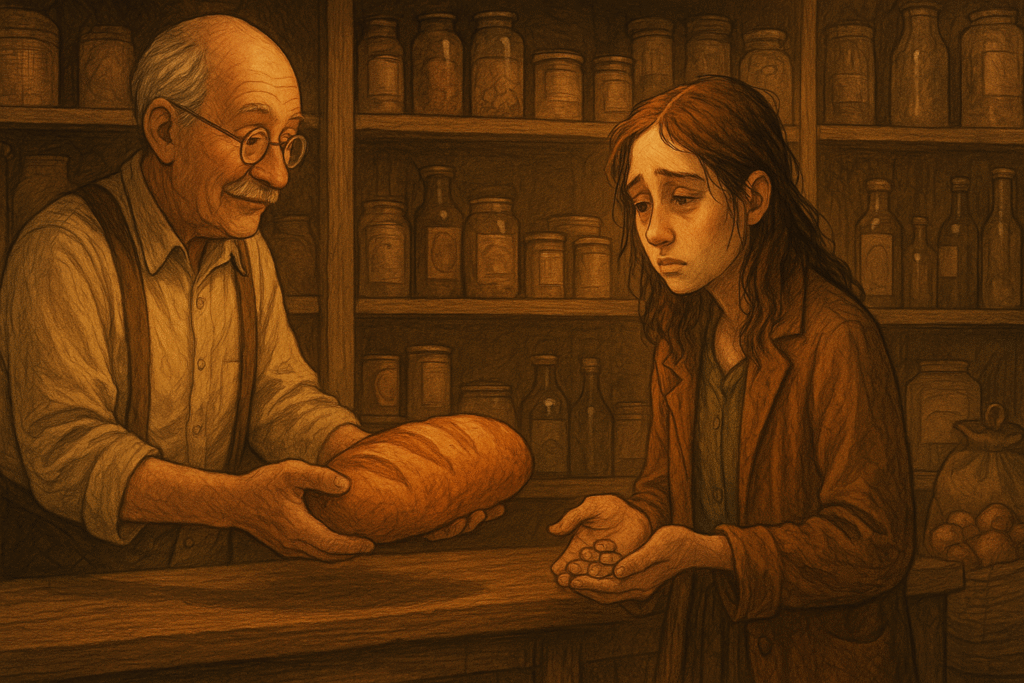
Fairglen wasn’t on any map worth knowing. A town so small, the gossip was older than most of its residents, and the one blinking stoplight hung like a tired sigh in the middle of downtown. But that’s what made it perfect. People there still trusted strangers. They still baked casseroles for funerals and gave directions by landmarks like “Old Man Harris’s rusted truck.”
If you wanted to disappear, you went to the city.
If you wanted to rebuild, you came to Fairglen.
I got off the bus with a single suitcase and an arsenal of well-practiced lies. The bus stop was barely more than a bench near the post office. I wandered until I found the center of town: a florist, a library, a faded mural of a cow on a barn wall, and a redbrick grocery store with a hand-carved sign that read: Campbell’s General Goods — Est. 1934.
That’s where I met him.
Edwin Campbell. Early fifties, built like a retired lumberjack, voice like warm soup. His flannel shirt tucked neatly into worn jeans, suspenders clipped over wide shoulders, and a soft sort of sadness in his face that said he’s lost someone. The town whispered: his wife had died of cancer. No kids. Just the store, and a heart too big for a place this small.
I walked in like I’d broken. Clothes wrinkled. Hair tied with a shoelace. I didn’t look homeless. I looked “just on the edge.” People love the edge. It makes them feel like they saved you just in time.
Over the next few weeks, I became the girl who fell on hard times. The kind people like to believe in. I used the library’s computer to “job hunt” and filled out applications I’d never send. I told quiet stories about a mother in hospice who didn’t exist, and an ex-fiancé with anger issues who did, though not in the way I described.
I said my name was Grace. It wasn’t. But it suited me, soft, humble, a name that made people want to reach out.
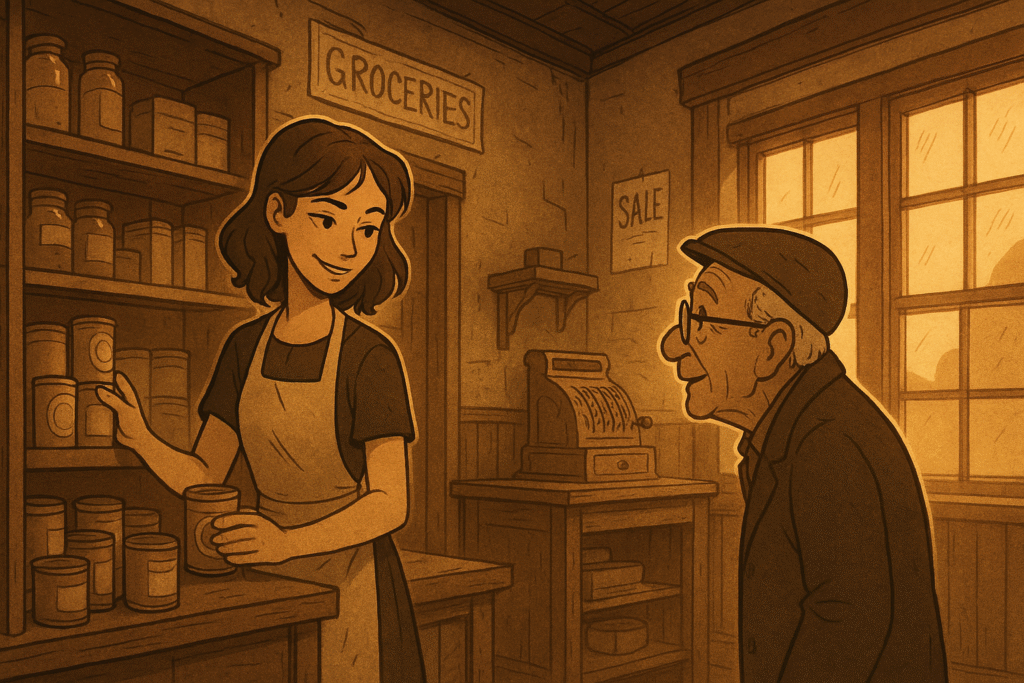
Edwin gave me a job.
At first, I stocked shelves. Then I cleaned. After two weeks, he let me ring up groceries. “Just until you get back on your feet,” he said, handing me a Campbell’s apron with my fake name stitched on it.
“Thank you,” I whispered. “You don’t know what this means to me.”
He smiled like I had healed something in him. That’s the thing about grief, it creates empty spaces. People want to fill them. I just gave him something to pour his kindness into.
I started bringing him cookies made from boxed mix. I stayed late, wiped down counters no one asked me to. I let him think he was protecting me. When a drunk customer shouted at me, I pretended to tremble until Edwin stepped in, fist clenched.
He offered me cash under the table. Told me to eat what I needed from the expired stockroom. Gave me books to read. Once, I caught him watching me fold receipts with a strange sort of fondness, like I was a daughter he’d never had.
But I wasn’t here for his kindness.
The real value wasn’t in Edwin’s wallet, it was in the system. I memorized inventory patterns. Learned when stock was updated. Noted how the back door camera glitched for five minutes every morning. Found the spot behind the radio where he left the register key.
He trusted me so much, he let me open alone one Friday. I took $500 from the till. Didn’t flinch. Rewrote the daily tally just enough to cover it.
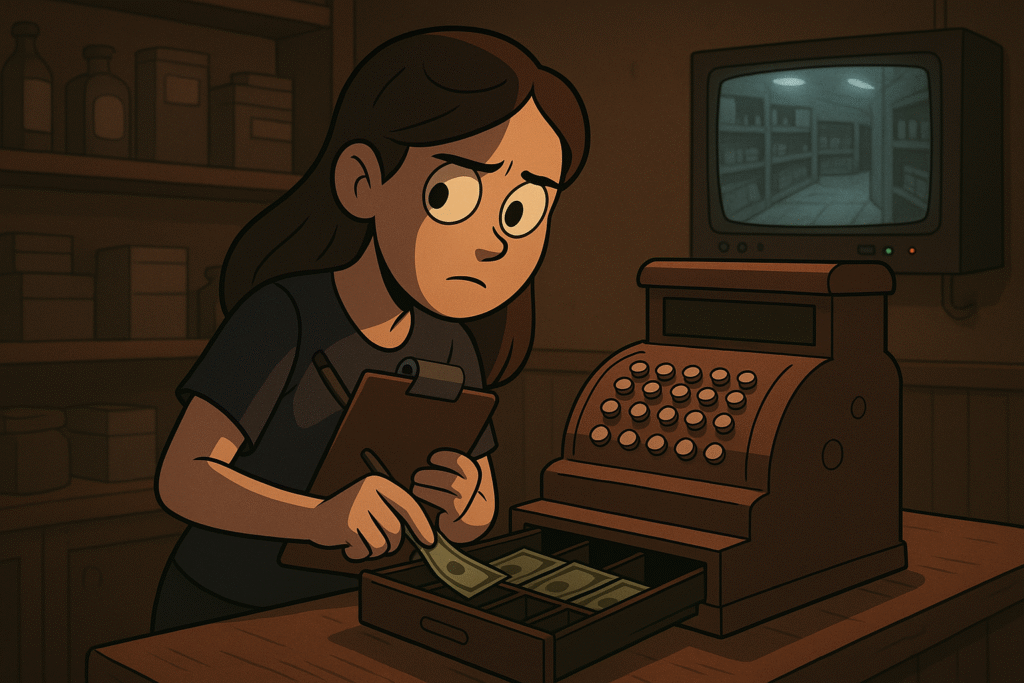
He never said a word.
Maybe he didn’t notice.
Or maybe he noticed and didn’t want to.
And then, ironically, I became too good at the lie.
Word of Edwin’s generosity spread. And just like that, the town followed suit. Mrs. Halberd from the church baked pies “for Grace.” The Rotary Club passed a donation jar. Even the pastor organized a community potluck “to lift her spirits.”
They made me the town’s cause. Their mascot for mercy.
And I stood there, smiling softly, accepting every kindness like it hurt me to do so.
I should’ve felt guilty.
I didn’t.
But it all started to unravel over a tomato.
I was cleaning the produce bin, ready to toss a bruised, overripe tomato into the trash. Edwin stopped me. “That was part of an order someone paid for. You don’t throw things out just because they’re not pretty.”
He said it gently. Like a lesson. Like something meant for me.
That’s when I noticed the change.
He stopped leaving the register key out.
Double-checked inventory at night.
Installed a new lock on the stockroom.
He didn’t accuse me. He didn’t even ask questions. But the look in his eyes changed.
He knew.
Or at least, he knew enough.
I could’ve walked away. Should’ve. But something in me, it wasn’t pride, exactly. More like hunger, needed to win.
So I staged a breakdown.
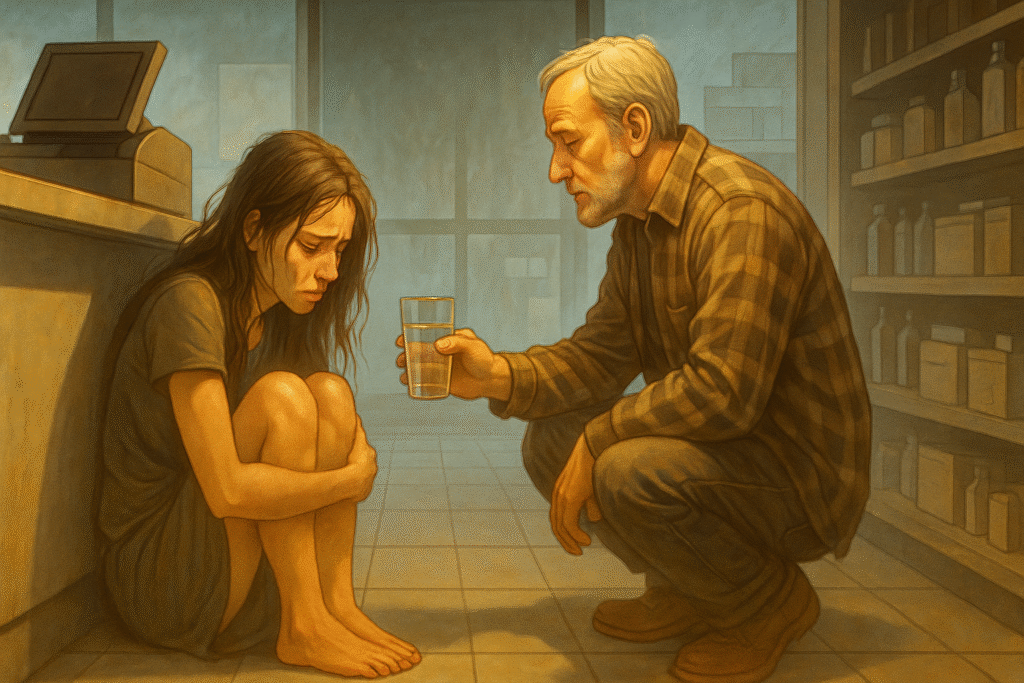
Cried after closing. Collapsed by the freezer aisle. Claimed someone had followed me home. Said I hadn’t slept in days. Told him I had nowhere to go and asked if I could crash at the store.
I looked up at him through wet lashes, waiting for that familiar warmth.
Edwin walked over, knelt beside me, and offered me a glass of water.
But his face wasn’t kind.
“Grace… if that’s your name… I think you need to leave.”
I blinked.
“What?”
He stood slowly, like his heart had calcified into something harder.
“I know what you’ve been doing. The money. The lies. I don’t know who you are, but I know who you’re not.”
I sat in silence, mascara streaking, wondering if maybe, for the first time, I’d overplayed it.
“You’ve been kind,” I said, voice cracking just right.
He nodded. “That’s my mistake. I thought kindness could fix people. But I see now—it just makes you a target.”
That night, I packed my suitcase. Left the apron on the counter. Took one last look at the town that had tried to save me.
Then I walked.
No bus out. No goodbyes. Just the quiet steps of someone who knew how to disappear.
Two months later, I was in another small town. New lipstick, new name. Halfway through charming the owner of a boutique bookstore who smiled too easily and wore wedding rings he hadn’t taken off yet.
And then it arrived.
No return address.
Just an envelope.
Inside was a single piece of paper.
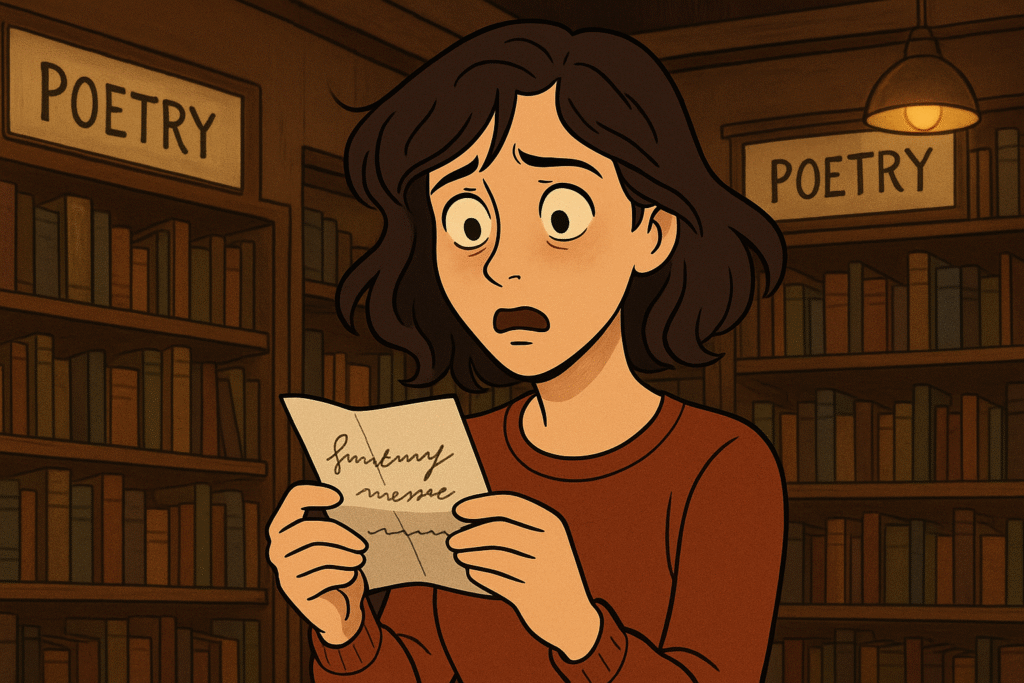
A receipt. My receipt. From my first day at Campbell’s General Goods.
Milk, bread, one bruised tomato.
And beneath it, scrawled in Edwin’s sharp, deliberate handwriting:
“You can fake a smile. You can fake a story. But sooner or later, someone will know the real cost of kindness. And that someone might just be you.”
I read it once. Twice. Folded it neatly and tucked it into my coat.
Then I walked back behind the counter, smiled at the man with the soft eyes, and asked if he needed help restocking poetry.
Because the only lesson I ever really learned?
You don’t stop playing the game.
You just switch boards.
